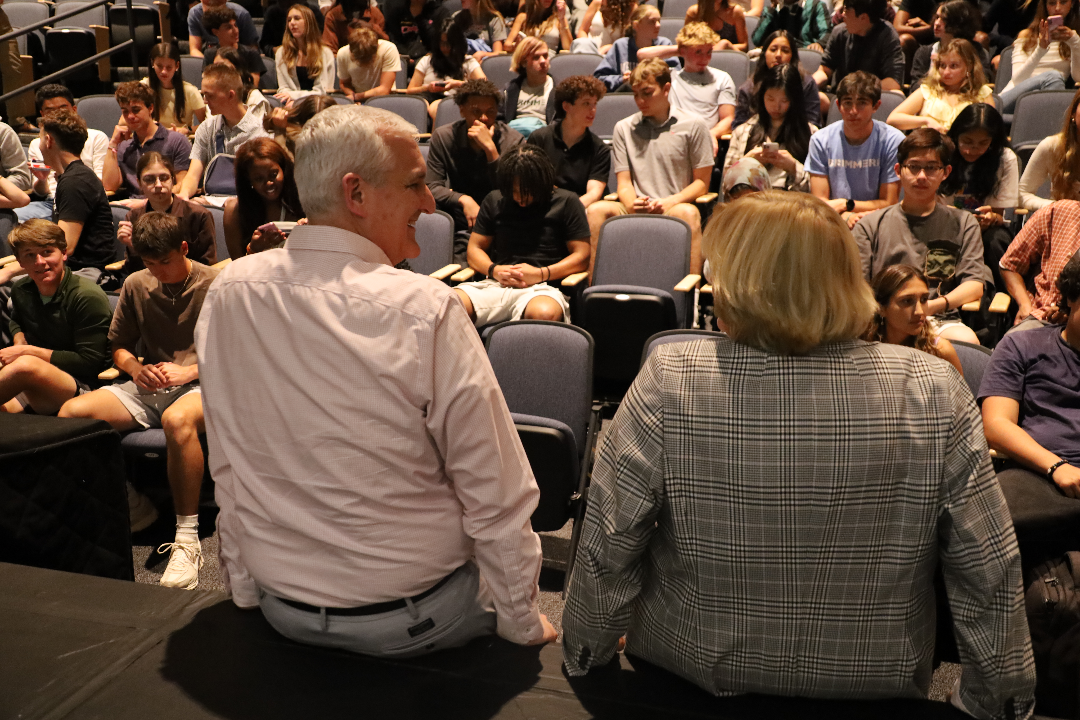Op-Ed: With Academics, Talent Isn’t Everything
My natural ability to accomplish things means nothing without the willingness to use it. Photo illustration by Edan Zinn ’23.
April 13, 2021
During my time in school, I have found it very easy for academics to feel like a competition. When you and all of your peers work hard to receive good grades on assignments, the need to compare your abilities to others’ is only natural.
In middle school, I hated whenever someone seemed to not work hard in classes, yet continuously received better grades than me on an assignment. It did not feel remotely fair that after putting in loads of time and effort into my work, nothing seemed to pay off in the end. After a while, I began questioning my abilities. I wondered whether it was worth it to put in any effort into my schoolwork at all.
Now, I realize how my previous mentality was far too limited and short-sighted.
I had assumed that I was the only one who put much effort into schoolwork, while those who had similar successes did well purely due to innate talent alone. Later, I realized the toxicity of my belief, which made me feel worse about myself while also unfairly judging my peers.
I also realized that no matter what, somebody, in some capacity, will always be better than you—whether by talent, experience, or both.
That was—and still is—a hard pill to swallow. From that point on, I decided to slow down and fully commit to my work. For example, if I finished a question on a test, I would give myself some extra time just to review my response. I also made it a point to more carefully assess my work before submitting anything for credit—regardless if everyone had finished earlier.
Truthfully, at first slowing down down felt painful. After some time adjusting, however, I felt a sense of liberation.
I could focus on myself instead of others, and I no longer felt an unhealthy competitiveness with my peers. I developed a strong sense of perseverance and grit, which allowed me to excel in a healthier learning mindset.
In a Ted Talk titled “Grit: The Power of Passion and Perseverance,” Angela Lee Duckworth presents an experiment she conducted in Chicago Public Schools.
“I asked thousands of high school juniors to take grit questionnaires, and then waited around more than a year to see who would graduate,” Duckworth said. “Turns out that grittier kids were more likely to graduate.”
As I had figured out, talent can only take you so far without effective study and learning skills . One’s natural ability to accomplish things means little without the willingness and ability to apply oneself, which Duckworth echos.
Duckworth also writes, “Our data show that there are many talented individuals who simply do not follow through on their commitments. In fact, in our data, grit is usually unrelated or even inversely related to measures of talent.”
After all of my academic soul searching, I have concluded that school is not about speed—it’s about process and growth, which everyone experiences differently. .
Everyone develops at their own pace, and that’s okay. If you put in the work, the results will follow.


























































